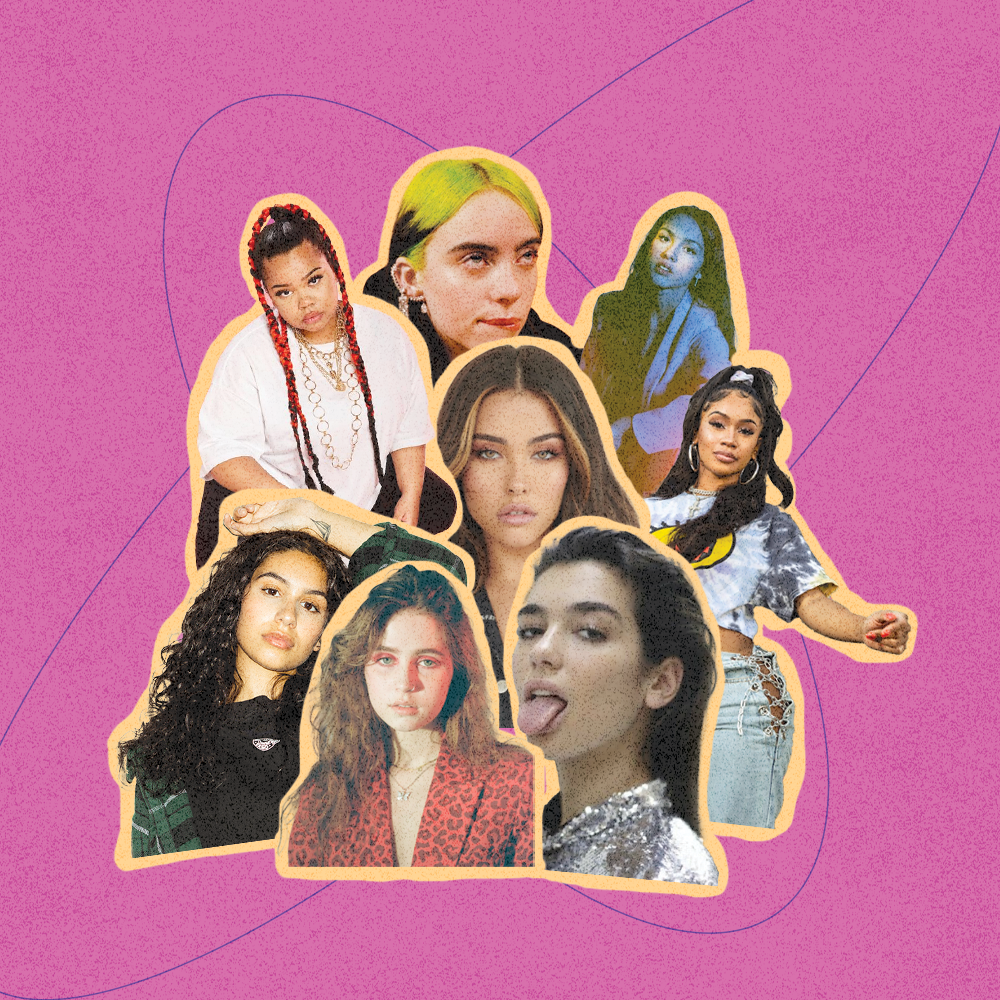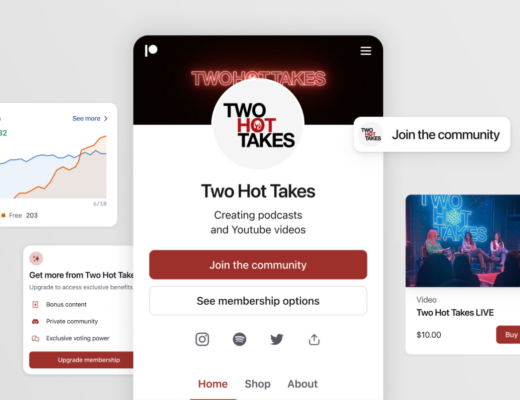Everyone loves a good underdog story; a rags-to-riches allegory which proves that regardless of your starting point in life, there are no limits to success, which may go a fair way in explaining why every stratospheric music industry ascent in 2024 results in accusations of artists being media plants.
In this article, we will explore what an industry plant purportedly is, the artists that have been brandished with this label, how the phrase is often misused and why the buzzword is leaving such a bitter taste in music fans’ mouths in 2024.
What Is a Music Industry Plant?
A “music industry plant” is a term that’s often used, sometimes controversially, in the music industry. It refers to an artist who is presented to the public as being a self-made, organic success, but who actually has significant backing from a major record label or industry insiders. The implication is that the artist’s popularity and grassroots support are not entirely genuine, but rather manufactured or heavily assisted by the industry.
Here are some key points about music industry plants:
Hidden Support: The artist may have significant financial, promotional, and professional support that isn’t disclosed to the public. This can include high-quality production, marketing teams, and connections that independent artists typically don’t have access to.
Image of Authenticity: These artists are often marketed as having risen to fame through their own efforts, such as through social media, word of mouth, or self-releasing music. This creates an appealing narrative of an underdog or a breakout star.
Controversy and Debate: The term is somewhat controversial and can be seen as pejorative. It’s often used by critics or fans who feel that the industry is being disingenuous about an artist’s origins and support. However, others argue that all artists require some level of support and that the term unfairly delegitimises the artist’s talent and hard work.
Impact on Perception: Being labelled as a plant can affect how audiences perceive an artist, potentially leading to scepticism about their authenticity and talent. However, it doesn’t necessarily diminish their popularity or success.
How the Phrase ‘Industry Plant’ is Misused in the Music Industry
Eric Skelton’s article on Complex delves into the misuse of the term “industry plant”. Skelton explains that while the concept of industry plants is real, with music executives sometimes using their influence to promote artists, the term has been overused and misapplied to artists who quickly gain popularity, without clear evidence of label trickery or deception.
The article highlights that a true industry plant is an artist whose success is primarily due to industry connections rather than artistic merit or genuine fan interest. Skelton uses the example of 4Batz, a Dallas singer who became a sensation with just three songs. Despite accusations of being an industry plant, 4Batz’s rise was a result of viral success and not industry manipulation.
The article criticises the quick judgment of new artists as plants without substantial evidence, noting that the term is now used as a lazy dismissal of any rapidly rising artist. Skelton argues that the term’s overuse detracts from its original meaning and is counterproductive to understanding the music industry’s workings. He suggests that instead of hastily labelling artists as industry plants, people should focus on the music itself and decide whether they like it, rather than getting caught up in unproductive conspiracy theories.
Which Artists Have Been Tarred with the Industry Plant Brush?
Over the years, several artists have been accused of being industry plants, often due to rapid rises to fame or perceived sudden shifts in their musical style or image.
Here are some artists who have faced such accusations:
Billie Eilish: Due to her rapid rise to fame and the polished nature of her debut, some speculated that she had significant industry backing. However, Eilish and her team have consistently credited her success to her unique style and organic growth through platforms like SoundCloud.
Lana Del Rey: After her breakout with “Video Games,” some questioned the authenticity of her image and backstory, suggesting she was a creation of the music industry. Del Rey has been open about her struggles and journey in the industry, countering these claims.
Halsey: Halsey’s rise to fame, particularly after she collaborated with The Chainsmokers on “Closer,” led to some labelling her as an industry plant. She has spoken about her grassroots beginnings and the hard work that went into building her career.
Lizzo: Lizzo’s sudden mainstream success, especially with her album “Cuz I Love You,” led to some speculation about industry backing. However, Lizzo had been actively making music and performing for years before her breakthrough.
Travis Scott: Some have speculated about industry support in Scott’s rise, particularly given his connections with established artists early in his career. However, Scott’s unique style and production skills are often cited as the primary drivers of his success.
Post Malone: Post Malone’s quick rise after “White Iverson” led to discussions about whether he had industry support. Malone has talked about his journey and the work he put into his music before and after becoming famous.
It’s essential to approach the topic of industry plants with an understanding that the music industry is complex, and the path to success can be varied and nuanced.
The Controversy of The Last Dinner Party
In 2024, it is impossible to talk about music industry plants without mentioning The Last Dinner Party, the Brixton-hailing indie group, which has been described as a modern-day paradox due to the millions of pounds of marketing being poured into their inarguably artfully affecting music. Stream their 2023 hit single, Nothing Matters, once, and you won’t be able to fight the compulsion to keep returning to the earworm.
Given the gravitas of their music, there’s no denying they were worthy of their Rising Star Award bestowed upon them at this year’s Brit Awards after they became BBC Radio darlings opened for the Rolling Stones and Hozier.
However, The Last Dinner Party’s express route to notoriety isn’t the only source of contention surrounding the band after a misquoted statement suggested that people no longer wanted to hear about the cost-of-living crisis in post-punk music.
Criticism surged through social media, accusing the band of being out of touch, especially considering the lead singer, Abigail Morris’ background from the affluent Bedales School. Bassist, Georgia Davies, who initially made the statement while discussing the scarcity of bands at the Brit Awards, claimed that the statement was used out of context, and in her original statement she wanted to emphasise how people are seeking escapism in theatrical music amidst a challenging political climate. She emphasised the band’s awareness of their privilege and their passion for supporting independent music venues and artists from marginalised backgrounds.
Why Music Fans Are So Averse to Industry Plants in 2024
In 2024, the aversion to music industry plants stems from a growing awareness and appreciation of authentic artistic journeys, especially in an era where social media has amplified the visibility of independent artists.
When industry plants use a facade of grassroots growth, the perception of inauthenticity clashes with the values of transparency and genuine talent. The frustration is further heightened by the visibility of numerous talented artists who tirelessly work to build their careers without significant industry backing.
Social media platforms have made it easier than ever to witness the struggles and successes of these independent artists. Fans can now follow an artist’s journey from their early stages, often involving years of hard work, setbacks, and gradual growth. This direct connection and the transparent view into an artist’s development foster a deeper appreciation for their efforts and achievements. In contrast, industry plants are often seen as bypassing this struggle, gaining unfair advantages through connections and financial backing. This can be perceived as undermining the meritocratic ideal that the best talent, regardless of background or connections, should have the opportunity to succeed.
The visibility of hardworking artists on social media, who may struggle to gain recognition despite their talent, underscores the perceived injustice of the industry plant phenomenon. It’s a narrative of authenticity versus manufactured success, resonating deeply in a culture that increasingly values genuine artistic expression and the democratisation of opportunity in the music industry.
Every talented band who isn’t getting paid their dues in the industry will have been told, ‘all you need is one lucky break’ by well-meaning fans and politely agreed, meanwhile knowing that all they really need is millions in marketing money at their disposal. So is it any wonder that artists who rise to fame and get all the backing they could possibly need are posited as the natural enemy of the average independent artists tolling the dilapidated fields of the music industry? The same goes for promoters who pour their blood, sweat and tears into promoting an artist only to be ignored by the gatekeepers such as the BBC and NME.
Article by Amelia Vandergast







No Comments